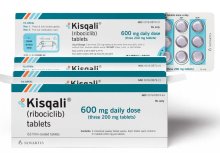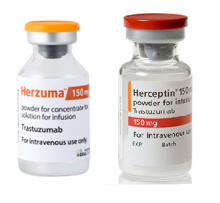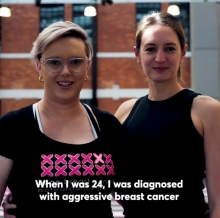Latest News

Researchers have engineered gold nanoparticles to target blood vessels in tumours and make them leaky so that chemotherapy drugs can get in and do their work more easily. Tumours have their own blood supply and it is already known that these blood vessels behave differently from those in normal tissue.

If you do, and you don’t really need any more stuff, why not set up a Gift Registry with The Good Registry? That means your family and friends can celebrate your big day without fuss and you can all support BCAC at the same time. It’s easy to do – here’s how:
Step 1: Head to thegoodregistry.com. Click the button for Registries.

New research, examining genes in tissue samples from women with DCIS, has identified a set of genes which could be used as markers to predict if the DCIS will progress to invasive cancer or not.

Women with obesity when diagnosed with early breast cancer have a higher risk of recurrence or a second cancer compared with women whose weight is in the normal range, but losing weight after a diagnosis can be difficult.

Ribociclib (Kisqali) is already used to treat advanced hormone receptor-positive (HR-positive) breast cancer. Now new research has shown it can also reduce the risk of recurrence when used in early breast cancer.
Ribociclib is known to improve survival when given to people with advanced HR-positive breast cancer. It belongs to a group of medicines called CDK 4/6 inhibitors; palbociclib (Ibrance, which is funded in New Zealand) and abemaciclib (Verzenio) are others in this group.

BCAC is confident that Pharmac’s switch of breast cancer drug Herceptin (trastuzumab) to Herzuma, a biosimilar version, will be safe and effective, but we wonder why it took so long to fund this cheaper alternative. BCAC is also disappointed that access has not been extended to those who need retreatment in advanced breast cancer.

Jess Coate (Ngapuhi), fitness instructor and bodybuilding pro, organised a hugely successful fun fitness and learning event for BCAC, attended by 80 women in Kirikiriroa Hamilton recently. Jess teamed up with BCAC to raise awareness of the danger breast cancer poses to young women. Watch this awesome video of the event with some vital messages!
Jess’ best friend, BCAC’s Deputy Chair Emma Crowley, was diagnosed with aggressive breast cancer at 24. Jess’ cousin was diagnosed at 35 and her grandma at 82, so she’s well aware that breast cancer can affect you at any age.

While drugs given during chemotherapy can help to combat nausea, more than half of patients also suffer from delayed nausea and vomiting. This kicks in after chemo has finished and can last for days. Some oncologists had reported that pantoprazole, a proton pump inhibitor which reduces stomach acid, was helpful for these patients. However, others were not convinced.
A recently completed New Zealand-based clinical trial (called PantoCIN) has provided proof that this treatment has benefits.

BCAC welcomed the opportunity to have input into the Ministry of Health’s new Women’s Health Strategy for Aotearoa New Zealand (read our submission here). BCAC stressed the importance of including breast cancer in this strategy and identified three key issues:

BCAC is alarmed by Pharmac’s proposal to review a rule that currently allows children with cancer to have free access to unfunded medicines. Read BCAC’s submission here. Pharmac’s reasoning is that by restricting this access, it would bring treatments for child cancers into line with those for other children’s diseases, where medicines access is limited. The current funding model for paediatric cancer medicines has seen 5-year survival rates improve from 28% in 1961-1970 to 86% in 2010 to 2019, matching rates in similar countries.



